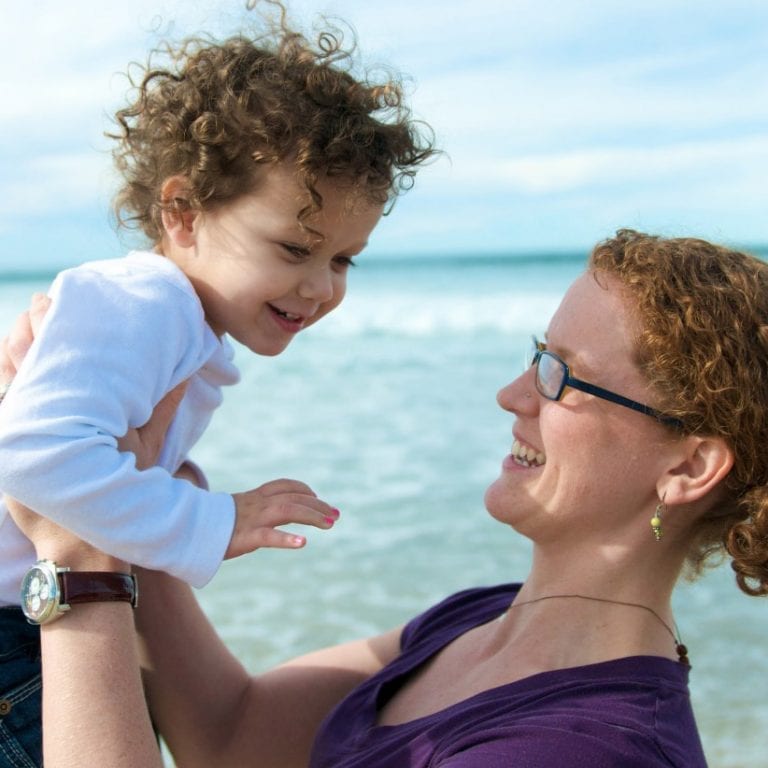“A healthy supply of diapers keeps babies clean and dry, but it also reduces parent stress… diapers help parents be able to further their education, as well as find stable housing and employment.”
Rachel Alston, mom to Ayva & Hazel
Portland mom Rachel Alston found herself in a tight spot when she had her daughter, Ayva. Her husband was in school, and Rachel was staying at home with the baby. They already received assistance from other programs, but diapers were proving to be a pressing expense. “I don’t think I truly understood diaper need until I experienced it myself,” she says. “I’ve also found that most people don’t know that there isn’t government assistance for families needing diapers.”
Unfortunately, Rachel was not able to find a diaper bank in her area. “Eventually we turned to cloth diapering, because we were lucky enough to have a washer and dryer in our unit,” she says. “But I know that some families are just not in that situation, because they’re in transitional housing or possibly even homeless, and most schools and daycares will not accept cloth diapering as an option.” Determined to help and hopefully decrease the number of moms in her position, Rachel founded PDX Diaper Bank, the first of its kind in Portland.
“Thinking back on that time in my life, I remember being so stressed that I couldn’t provide this basic necessity for my child,” Rachel recalls. “Being a parent is challenging enough without having to count diapers or worry if you’re going to make it through the week.” As executive director of PDX Diaper Bank, Rachel meets families from all walks of life who experience that stress and worry. “They’re just trying to cope and survive day-to-day living—overcoming homelessness, securing stable employment, battling health problems… all while trying to raise a child,” she says. “They are true everyday heroes.”
If there was one thing Rachel could communicate to people considering donating to or even starting a diaper bank, it would be that there is such a great need, even if you don’t see it outright. “There aren’t enough diaper banks in the United States to completely close the diaper gap, but that is slowly changing as advocates educate communities about diaper need and the impact it has on families,” she says.






Comments are closed.